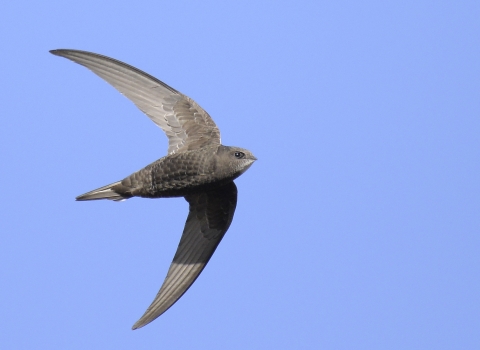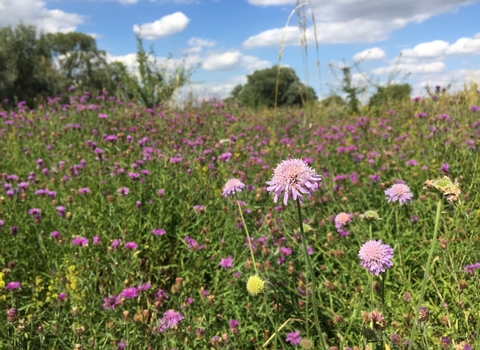We have a colony nest box on the side of our building at Trumpington Meadows nature reserve provided by Action for Swifts and there are currently three holes occupied. We've had cameras in these boxes for several years and now for the first time we are live streaming all the comings and goings from box 3 as the chicks eat and grow. Should you spot little bugs in the live stream footage, they are usual on most birds, as Ranger Becky explains: 'These are flat flies - not ticks - an obligate hematophagous parasite, or swift louse. They do no known harm to the swifts - they all have them, as do most birds.'
Swifts arrive in the UK in late spring each year from Africa and stay for around three months during which time they must mate, prepare a nest, lay eggs and raise their young, feeding them regularly until they are strong enough to fledge. They pair up for life and they will meet up at the same site each year.
Our team of staff and volunteers work hard to manage Trumpington Meadows as a reserve rich with a diversity of wildflowers, which in turn support a range of insects. This makes it a great spot for swifts which hunt airborne invertebrates, collecting them in a food pouch in the back of their throat which they take to the nest to feed the young.
Swift populations have declined rapidly in recent years so sites like Trumpington Meadows and the provision of swift boxes are vital to ensure they continue to return to our skies each summer.
Becky Green on swifts (https://youtu.be/hoc_zdkuB1s)
Trumpington Meadows Ranger Becky Greene talks about why swifts are so amazing, and what we're doing to help them
Our swift colony box
Our nest colony box was built, donated and installed by Action for Swifts - a big thank you to them for their help. We put our 10 hole triangular colony box up in May 2018 and started playing recorded swift calls from dawn to dusk to encourage the birds in.









